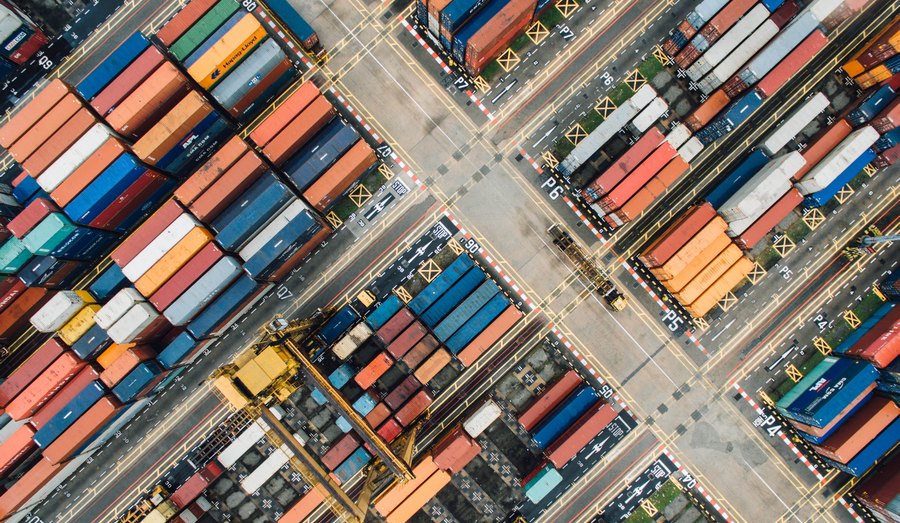Supply Chain Risk – the focus is on

Summary: a renewed focus is on modern slavery in supply chains, and in particular, those supply contains connected with Xinjiang province in the P.R.C. New regulations and enforcement measures are being introduced in Canada and the U.K. and are before Parliament in Australia.
The risk of forced labour and slavery like conditions in supply chains has been highlighted by an Australian Strategic Policy Institute report on factories in the Xinjiang province and throughout Mainland China (Report).
The Report, along with a number of Governments announcing new enforcement measures against companies with supply chains containing modern slavery, has prompted Independent Senator Rex Patrick to table a bill that would ban the importation into Australia of goods produced with Uyghur forced labour.1
The report
According to the Report:
- Since 2017 the Chinese government has been operating ‘re-education camps’ in Xinjiang province as part of a system that has been called ‘cultural genocide’. Under the guise of combating ‘religious extremism’, Uyghurs and other people belonging to Turkic Muslim minorities have been, ‘subjected to political indoctrination, forced to renounce their religion and culture, and in some instances, reportedly subject to torture’.2
- Some ‘trainees have graduated’, from the camps, and are now forced to work in factories in Xinjiang, and across the country under ‘forced labour conditions’.3
- It is estimated that, ‘more than 80,000 Uyghurs were transferred out of Xinjiang to work in factories across China between 2017 and 2019, and some of them were sent directly from detention camps’.4
- Uyghur workers in these factories are reported as being subject to: arbitrary detention, threats and intimidation, including threats to their family, constant surveillance, restricted movement and living conditions and abusive working conditions that include ‘political indoctrination, police guard posts in factories, military-style management, and a ban on religious practices’.5
- There is a direct relationship between the camps and factories across China that are involved in the ‘supply chains of at least 82 well-known global brands in the technology, clothing and automotive sectors, including Apple, BMW, Gap, Huawei, Nike, Samsung, Sony and Volkswagen’.6
Government action
The United Kingdom, United States, and Canada have all issued statements condemning the practice of forced labour by the Chinese government in Xinjiang. Canada and the United Kingdom issued coordinated statements urging companies to conduct due diligence on their supply chains. Both countries plan to use export controls to prevent the export of goods that contribute human rights violations, like advanced technology used for surveillance.7
In addition to a law that prohibits ‘the importation of goods from any country that are produced wholly or in part by forced labour’, the Canadian Government now requires companies operating in or interacting with Xinjiang to issue an ‘Xinjiang Integrity Declaration’ when engaging with the Trade Commissioner Service. The declaration acknowledges that the company is aware of the human rights violations occurring in Xinjiang, ‘abides by all relevant Canadian and International laws’, and strives to meet OECD and UN guidelines for responsible business. Failure to meet these requirements could result in ‘withdrawal of trade advocacy support’ and future government financial support.8
The United Kingdom is reviewing which U.K. products can be exported to Xinjiang and plans to introduce ‘financial penalties for organisations who fail to meet their statutory obligations to publish annual modern slavery statements, under the Modern Slavery Act.’9
In the final days of the Trump administration the United States banned the importation of all cotton and tomato products produced in Xinjiang,10 and declared that China committed genocide through its repression of Uyghur Muslims.11 The Biden administration has said that they agree with the genocide determination and are performing procedural steps that were previously missed to ensure the determination holds. The US Senate will now re-consider a bill that would prevent the importation of any goods made with forced labour in Xinjiang.
Australia’s Foreign Minister Marise Payne has recently said that, ‘Australia shares the serious concerns of international partners, such as the UK, about human rights abuses in Xinjiang, including in relation to forced labour and arbitrary detention’.12 Minister Payne has urged companies to conduct due diligence to determine if their supply chains are affected by forced labour consistent with the Modern Slavery Act 2018 (Cth) (MSA).13
Independent Senator Rex Patrick does not think the current government has gone far enough and introduced a private member’s bill seeking to ban all imports of goods produced in Xinjiang, and goods produced with forced labour elsewhere in China. He believes that stronger multilateral pressure is the ‘only real solution to the repression taking place in Xinjiang’, and that his proposed legislation would bring Australian policy in line with rhetoric. Goods imported contrary to this legislation (if enacted) would be subject to the penalties that apply to the importation of other prohibited imports under the Customs Act 1901.14
Australia’s regulatory framework
Australian businesses already face a range of penalties should their businesses involve modern slavery. The risks range from commercial disruption if factories are suddenly closed, to criminal liability and penalties for breach of director’s duties and anti-money laundering legislation. Companies with consolidated revenue of more than $100 million must also report on the due diligence measures in place to prevent modern slavery in their operations and supply chains.
These risks are expanded on below.
Commercial transactions involving modern slavery are criminalised
The Criminal Code Act 1995 (Cth) makes it an offence to conduct a business involving the forced labour or servitude of another person; to enter into any commercial transaction involving a slave (including providing finance for the business) or to exercise control or direction over, or to provide finance for any commercial transaction involving a slave. The terms ‘conducting a business’ and ‘any commercial transaction’ are very broad and could capture a procurement transaction by which the goods are produced by forced labour, servitude or slavery, as well as, providing finance for a business which uses forced labour, servitude or slavery.
Liability for these offences under the Criminal Code will often depend upon whether the company and the persons involved, have taken reasonable steps to prevent slavery, forced labour or servitude being involved in their business.
Penalties under anti-money laundering legislation
Under the Anti-Money Laundering and Counter-Terrorism Financing Act (2006) (Cth) reporting entities must have in place policies and procedures for identifying:
- transactions involving money or property which is proceeds or an instrument of another Australian crime;
- information they reasonably suspect may be relevant to the investigation or prosecution of a modern slavery offence under the Criminal Code.
Failure to comply with these requirements can result in significant financial penalties. In 2019, a big four bank was identified as having been involved in financial transactions relating to child exploitation and disclosed breaches of its due diligence and reporting obligations under the anti-money laundering legislation. The resulting financial penalties amounted to $1.3 billion.
Companies must report annually on their due diligence
Currently under the MSA, an entity with consolidated revenue of more than $100 million must describe its structure, operations and supply chains, the risks of modern slavery practices in its operations and supply chains, the actions taken to assess and address those risks, including due diligence and remediation processes, and how it assesses the effectiveness of such actions. The statement must be approved by the company’s board or governing body.
The MSA does not currently contain penalties for non-compliance. However, a failure to properly comply could evidence lax corporate compliance resulting in a breach of directors’ duties, liability under the Criminal Code and class action risk. Conversely, if a company has taken reasonable steps to comply with the MSA, this suggests that the directors have met their fiduciary duties and the company is less likely to be criminally liable under the Criminal Code.
Moving forward
The Report should be considered a red-flag for any company conducting China-related business so that a current risk assessment review is undertaken. For other businesses, the Report is a reminder of the need to have in place an appropriately tailored and dynamic compliance system to identify and manage risks on an on-going basis.
As noted in our previous Insight (click here), the COVID-19 pandemic has increased supply chain risk and has made risk management more difficult due to sporadic closing of factories, and the near halt of international travel. It is essential that businesses ensure that their compliance risk management systems and procedures are adequate in light of the changed environment.
How we can help
Cite Legal offers market leading expertise with respect to:
- Cross-border transaction and supply chain risk assessment;
- Risk management policies and procedures;
- Whether contractual provisions provide adequate protection;
- Investigations, remediation and crisis management in respect of non-compliance.
Please contact us to discuss.
1 See https://www.rexpatrick.com.au/uyghur_bill_introduced
2 Report 4
3 Report 4
4 Report 3
5 Report 6
6 Report 3
7 https://www.gov.uk/government/news/uk-government-announces-business-measures-over-xinjiang-human-rights-abuses; https://www.canada.ca/en/global-affairs/news/2021/01/backgrounder---measures-related-to-the-human-rights-situation-in-the-xinjiang-uyghur-autonomous-region.html
8 https://www.canada.ca/en/global-affairs/news/2021/01/backgrounder---measures-related-to-the-human-rights-situation-in-the-xinjiang-uyghur-autonomous-region.html
9 https://www.gov.uk/government/news/uk-government-announces-business-measures-over-xinjiang-human-rights-abuses
10 https://www.nytimes.com/2021/01/13/business/economy/xinjiang-cotton-tomato-ban.html
11 https://www.reuters.com/article/us-usa-china-genocide-idUSKBN29W268
12 https://www.afr.com/politics/federal/australian-companies-warned-about-doing-business-in-china-s-xinjiang-20210115-p56ubs
13 The NSW government has passed a modern slavery act and intends to implement it following harmonisation discussions with the Commonwealth Government. Two major points of difference between the NSW and Commonwealth Acts are the reporting requirement ($50 million in NSW, as opposed to $100 million), and that there are penalties in the NSW Act for non-compliance.
14 Explanatory Memorandum, Customs Amendment (Banning Good Produced by Uyghur Forced Labour) Bill 2020 (Cth) https://parlinfo.aph.gov.au/parlInfo/download/legislation/ems/s1284_ems_06516164-02c7-4cf1-b821-5192f1a2ad47/upload_pdf/20S21em.pdf;fileType=application%2Fpdf

